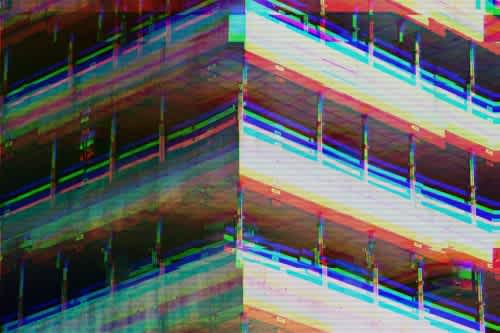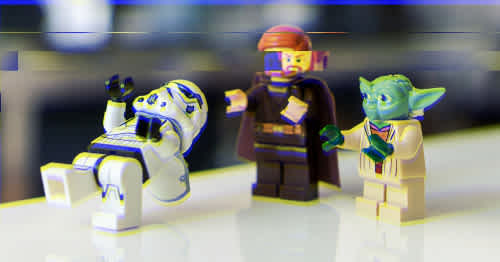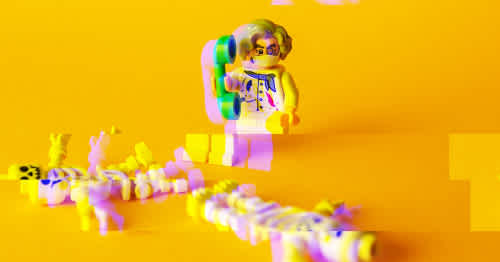Throughout the summer I've been reading through critical thinking books, such as Thinking Fast and Slow, The Art of Critical Thinking, Super Thinking: The Big Book of Mental Models, and currently working on Principles by Ray Dalio.
More to come! This is part of a side-project to become better critical thinkers and developing a framework for making decisions.
I've enjoyed the book and it's been interesting to learn how different leaders lead; creating the culture they appreciate. Mr. Dalio split Principles up into three parts, first giving an introduction to who he is, followed by life principles, and ending with work principles. I wanted to touch on chapter three in part two, Be Radically Open-Minded because as a software developer and future husband, it hit home for me.
Note: anything in quotes throughout the article will be quotes from the book unless otherwise stated.
...
Two Barriers to being Open-Minded
When trying to make a decision, there are two barriers mentioned in the book that make it difficult:
Your Ego
Your blind spots
"They make it difficult for you to objectively see what is true about you and your circumstances and to make the best possible decisions by getting the most out of others."
Your Ego
Have you ever been in heated discussions with friends or family that cause your blood to begin pumping through your body?
Like Uncle Phil in Fresh Prince, where Will recognized the huge vein in his uncle's neck when he's angry.

We all have a defence mechanism that makes "it hard for you to accept your mistakes and weaknesses."
This ego causes you to respond as if you are being attacked for an idea, even though you know it isn't personal. Your brain as an inner subconscious (intuitive and emotional) and a higher level of conscious awareness that makes logical decisions. They both fight to control you during the decision process, and it's your lower level "you" that responds strongly (with emotions) to criticism.
Your Blind Spot
Blind spots are areas in which your "way of thinking prevents you from seeing things accurately."
Mr. Dalio mentioned how some people can see the big picture vision but miss small details, while others are the opposite. Some are lateral while others are linear thinkers. Some people are task executors and people who are go-with-the-flow creators. In other words, each one of us thinks differently within our frame of reference, and we must accept that we have blind spots so others can help us out.
It's similar to checking your blind spot in your car. There's the smart option -since you know the blind spot exists in the mirror, you check over your shoulder to make sure there isn't a car there. The other option is knowing the blind spot is there, but not caring so you merge without looking....ruh roh.
Change Your Perspective by Practicing Radical open-mindedness
To get better at making decisions and learning to disregard some of the emotions from our inner subconscious during open discussions, we must first change our perspective on one key point.
Finding the Truth
A discussion and open disagreement isn't about being RIGHT - it is about getting the TRUTH, which leads to the most optimal solution to a problem.
This means to explore and understand the different points of view and possibilities when discussing solutions with your colleagues, friends, or family. It requires your thinking to change from being RIGHT or WRONG to finding the BEST answer.
One of my favourite sentences:
"Most people don’t understand what it means to be radically open-minded. They describe open-mindedness as being “open to being wrong,” but stubbornly cling to whatever opinion is in their head and fail to seek an understanding of the reasoning behind alternative points of view."
Sound like you sometimes in your life? Me too!
Listening to Other Points of Views
The book guides us on how to best to this through a few principles summarised below.
Accept that you might not know the best possible answer
With this new perspective in mind, you can now openly discuss and listen to others in the discussion to make the best decision.
Before starting to do so, ACCEPT that you might not have the best answer, so listen and understand the disagreeing party's point of view. This doesn't mean they have a stronger point; although, they could and the idea is to figure that out versus arguing with them.
Decision Making has Two-Steps
Mental models show us that as humans we have biases and Daniel Kahneman recognized that our decision making is based on fast-thinking, before even considering all of the data.
The brain does this to save energy since brain powering takes quite a lot of calories to work :).
Step 1: Gather the Info
Many times we base decisions on what we know, our frame of reference, and our experiences without really considering the other facts. Whether that is in the form of articles or people, we must take the time on tough decisions (or big decisions that affect the team) with care.
Interestingly enough, if we are asked an outlandishly difficult question, we will substitute it with a question we have knowledge on and answer that question instead (our brains are weird huh?).
Other Perspectives from Believable People:
During this phase, it's imperative to take in other perspectives to get a better grasp of their frames, and doing so with an open mind that doesn't care how good they look in the process.
Ray uses a term called believability in the book.
Believability means to take in the perspectives of people that have experience and knowledge on what you're deciding on because many people have the "take two lefts and it's on the corner" syndrome - aka they give directions to the stranger who stops by and asks for help but they have no idea where the location is.
Here's my favourite quote from the book that helped me see a different perspective on doing this better, not only at work but all relationships in my life!
"When two people believe opposite things, chances are that one of them is wrong. It pays to find out if that someone is you. That’s why I believe you must appreciate and develop the art of thoughtful disagreement. In thoughtful disagreement, your goal is not to convince the other party that you are right—it is to find out which view is true and decide what to do about it. In thoughtful disagreement, both parties are motivated by the genuine fear of missing important perspectives. Exchanges in which you really see what the other person is seeing and they really see what you are seeing—with both your “higher-level yous” trying to get to the truth—are immensely helpful and a giant source of untapped potential. To do this well, approach the conversation in a way that conveys that you’re just trying to understand...Use questions rather than make statements. Conduct the discussion in a calm and dispassionate manner, and encourage the other person to do that as well. Remember, you are not arguing; you are openly exploring what’s true. Be reasonable and expect others to be reasonable. If you’re calm, collegial, and respectful you will do a lot better than if you are not. You’ll get better at this with practice."
Powerful stuff! I just can't point it any better than that and it MAKES so much sense.
Have Clear Objectives:
Further, one should be clear on what you want to know and the reason for wanting to change or make this decision. You wouldn't begin writing a research paper without knowing the topic or question you want to know the answer to.
Follow the Iron Prescription:
To hammer the point home for finding differing perspectives, I lean on the shield of Mr. Munger and his iron-prescription:
A quote from Charlie Munger in his commencement address comes to mind:
“I’m not entitled to have an opinion on this subject unless I can state the arguments against my position better than the people do who are supporting it.” I think only when I reach that stage am I qualified to speak."
Avoid Deep Idealogical Thinking
He uses this to prevent his mind from becoming cabbage, specifically when drifting too far into an ideology. Why? Because an ideology can cloud our judgment to the point of blatantly ignoring facts due to our commitment to them. The story he gives to show how tragic doing so can be is about Scandinavian canoeists:
"In my mind, I got a little example I use whenever I think about ideology and it’s these Scandinavian canoeists who succeeded in taming all the rapids of Scandinavia and they thought they would tackle the whirlpools in the Aaron Rapids here in the United States. The death rate was 100 percent. A big whirlpool is not something you want to go into and I think the same is true about a really deep ideology."
For development teams, this means just because you've always followed a specific style or used a specific library that you WON'T change even if it makes sense to do so. React is an awesome library and I see so many benefits to using it, but what if that changes? Are you so far into the React ideology of web dev that you won't change?
Think about all of those who strongly argued for spaces versus tabs. They committed to it. Then, a member of the team joins who need more accessibility during development - lo and behold tabs it is!
How much easier is it to change if you haven't argued and committed to spaces as the only way to go? So much easier! Why? Because now you don't have to admit being wrong or admit to having to change. Instead, you list out why spaces make sense but one must always be open to changing their stances on issues as new evidence or strong reasons warrant it.
Step 2: Decide
Once you have completed step one (gather info) and your data is as compiled as a Java program; the time to make a decision has arrived. I believe that one of the best ways to base decisions requires having guiding objectives or goals to base it on.
For example, a software team wants to have quality code standards right? But what does that mean to that team? Is it readability they find most important? Is it bundle size and performance? Is it both?
This first principle thinking of what makes a great team then helps guide you in making decisions that might influence it, like choosing which library to use for unit testing react components.
The key is to weigh all positions, using evidence to determine which direction influences you're objectives the most. One key point to understand - you might have had the right perspective from the beginning, but now you KNOW that you do, so the best decision can be made and EVERYONE feels heard and understands the reasoning behind why you made the decision the way you did.
Attributes / Anti-Patterns for Open-Mindedness (in other words, being close-minded)
These are directly from the book, and instead of diving into each one, I will keep them as is.
"Closed-minded people don't want their ideas challenged."
"Closed-minded people are more likely to make statements than ask questions."
"Closed-minded people focus much more on being understood than on understanding others."
"Closed-minded people say things like 'I could be wrong...but here's my opinion."
"Closed-minded people block others from speaking."
"Closed-minded people have trouble holding two thoughts simultaneously in their minds."
"Closed-minded people lack a deep sense of humility."
This simple list inspired me to reflect on my level of open-mindedness, and I am PUMPED to get better.
I've felt my whole life that I'm opened to others' opinions; but, I see this list and recognise a few areas I need to do better. I NEED to listen better and accept challenges because that is just how the best decisions can be made and others can truly feel heard!
Why this topic matters to developers?
Have you ever had a team discussion on architecture or team standards with everyone having differing opinions?
Have you ever had to make decisions for your ticket that might be a new pattern the team should know about or weigh in on?
How about refactoring or upgrading legacy code for better performance or quality...or falling in love with React Hooks?
I've had every single situation as a developer.
The industry has recognized the importance of soft and leadership skills as part of being well-rounded developers. Making these decisions without causing team grudge matches makes working as a TEAM a wonderful experience. It's not about everyone being right, it's about finding the truth together that most benefits the team we are all trying to be best on.
By learning better ways to navigate those meetings and make better decisions, not only do you grow, but your teammates do as well, all while the team reaches a higher level of success.
That's a WIN-WIN-WIN situation!!
Thank you for reading and I'm looking forward to creating a future framework for anyone to utilise when making decisions. Can't wait!!


